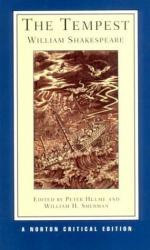|
This section contains 3,732 words (approx. 10 pages at 400 words per page) |

|
Caliban has remained one of the most compelling characters in The Tempest, and has elicited a large portion of the critical interest in the play. Early commentators were often drawn to Caliban. In 1679 John Dryden cited this figure as an example of Shakespeare's genius for creating distinctive and consistent characters, and he remarked on the creature's malice, ignorance, and sinful nature. Dryden's emphasis on Caliban's negative qualities was not the rule, however, and later criticism has demonstrated the complexity of his character. In the eighteenth century, Joseph Warton remarked on the lyrical quality of Caliban's speeches. August Wilhelm Schlegel commented further on Caliban's dual nature, and, though he acknowledged that Caliban is base and cowardly, called him poetic "in his way." Partially because of his quasi-human status, Caliban has, like his counterpart, Ariel, been the subject of allegorical speculation. The nineteenth-century German critic Hermann Ulrici, for example...
|
This section contains 3,732 words (approx. 10 pages at 400 words per page) |

|




